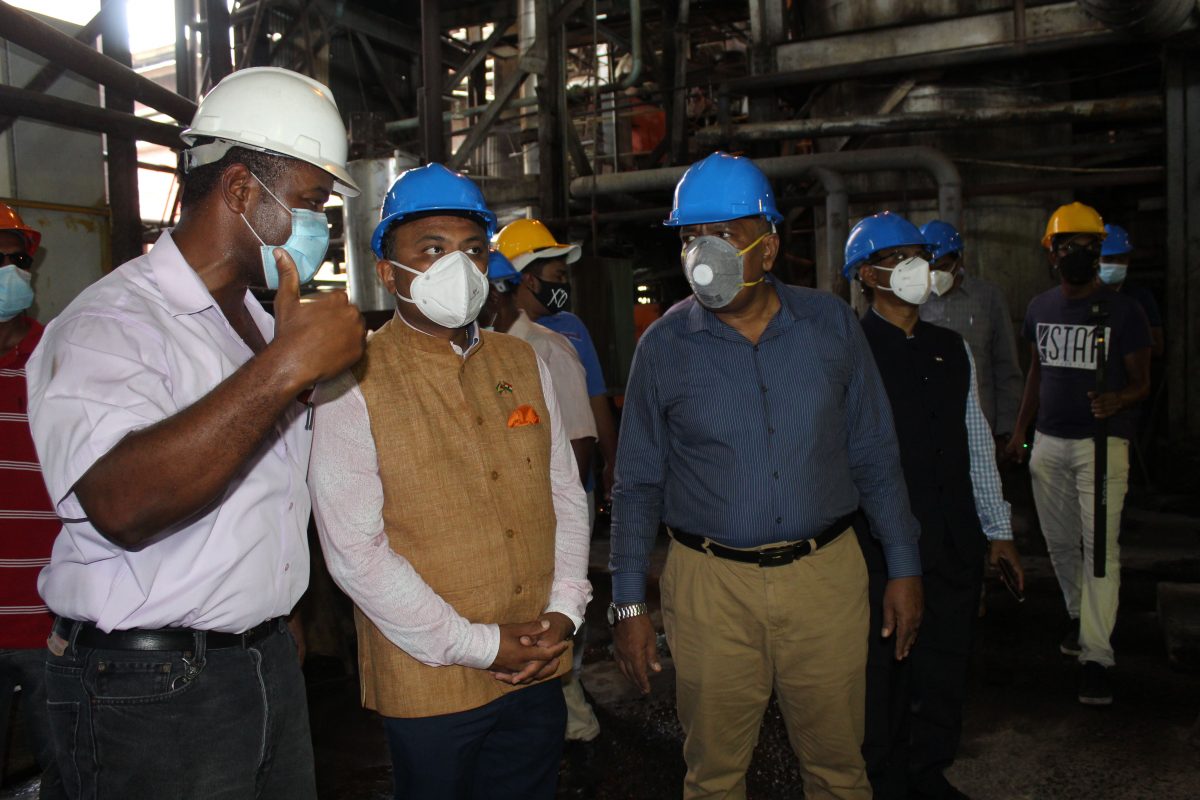Minister of Agriculture, Zulfikar Mustapha on Saturday stated that as his ministry moves ahead with the reopening of the sugar estates it is working to secure the help of “technical personnel” from India to advise and assist on the best way forward for the factories and cultivations.
“I am hoping that we can have help from India in terms of technical personnel. I have already written to the High Commissioner of India and they are looking at technical expertise to come and help us at the factory level and also I will be requesting them to have technical experts coming here to help us in our cultivation”, he stated.
Mustapha stressed that they are seeking assistance in relation to both the factories and cultivations.
As such, the minister said that the Indian High Commissioner asked if the ministry could facilitate a tour to all the country’s estates. As a result a team from the ministry, GuySuCo and the high commission visited the estates in Berbice on Saturday.
At the Skeldon Estate, Mustapha relayed that the factories which were not closed by the previous administration are only working at between 40% – 60% capacity due to neglect over the recent years.
He said: “We know for a fact that over the years a number of critical works were neglected in those factories that are running presently and because of that they are only running between 40 to 60 % capacity”.
According to Mustapha, they have already started to disburse funds budgeted to GuySuCo in the hopes of improving the sector.
Mustapha yesterday also relayed, that both the Private Sector Commission and the Georgetown Chamber of Commerce and Industry have expressed their interest in investing in GuySuCo.
“So I’m very optimistic that we can have the public-private partnership in GuySuCo, not only the government alone… We will have to ensure that these factories keep running and keep the labourers and keep sugar alive”.
At the Rose Hall Estate, the officials were told that it is expected that sugar will be produced by the end of 2021, while at Skeldon they are looking at producing sugar by the first crop of 2022.
On October 7th, Sasenarine Singh, the Chief Executive Officer (CEO) of GuySuCo told Stabroek News that two engineers are expected from India in January to advise on the best way forward in relation to the reopening of the Skeldon Sugar Factory.
He said of the three estates, the greatest challenge lies at the biggest factory, that being the Skeldon Estate.
Noting that he wished to be transparent, Singh said, “Skeldon has challenges in the power plant with regards to the boiler, they have challenges at the front end of the factory with regards to the diffuser and they had a challenge with regards to the hoist because even though it was designed for 350 tons of cane per hour it is not performing at that level”.
According to the CEO, the two Indian engineers are expected in Guyana by January “to interrogate” the Chinese-built Skeldon factory. As such, he said, once the experts arrive and commence their work, GuySuCo should be able to get a clear understanding of what needs to be done at the factory by June, next year. “And we can then take that to the policymakers to help make decisions on the way forward”.
However, he said, while they are awaiting that process they are also inviting private participants to join the intervention to fix the factory “and to see if they can bolt on a white sugar industrial grade… refinery”.
According to him, the reasons why he believes that would be a “natural fix” is because “Skeldon is right there on the ocean, a plant … there means the ships can come there, makes it easier to move this to the Caribbean region”.





